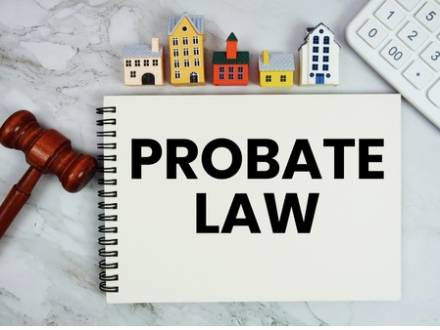 Serving Denton County Since 1992 | 6021 Morriss Rd., Suite 101, Flower Mound, TX, 75028
Serving Denton County Since 1992 | 6021 Morriss Rd., Suite 101, Flower Mound, TX, 75028

Recent Blog Posts
Can Probate Be Reopened After It Is Closed?
 Probate can sometimes be reopened after it is closed. However, this usually only happens in specific situations, such as when new assets are discovered or important information regarding an estate plan was missed during the original case.
Probate can sometimes be reopened after it is closed. However, this usually only happens in specific situations, such as when new assets are discovered or important information regarding an estate plan was missed during the original case.
If you are dealing with an unexpected estate issue in 2026, it is important to understand your options. A Denton County, TX probate lawyer can review your situation and help you decide whether reopening probate may be possible.
What Does It Mean To Reopen Probate in Texas?
Reopening probate means asking the court to rule on part of an estate again after the case has already been closed. Probate is the legal process used to settle a person’s estate after death. This process usually includes paying debts and distributing property to heirs.
When is it Time to Update Your Estate Plan?
 When your life, your finances, or Texas law have changed in a way your current documents do not reflect, it is time to update your estate plan. Many people wait too long, even though outdated plans often cause confusion or disputes. In fact, a 2025 national survey found that more than 60 percent of American adults still do not have an up-to-date will. That gap can leave families unprotected when something unexpected happens.
When your life, your finances, or Texas law have changed in a way your current documents do not reflect, it is time to update your estate plan. Many people wait too long, even though outdated plans often cause confusion or disputes. In fact, a 2025 national survey found that more than 60 percent of American adults still do not have an up-to-date will. That gap can leave families unprotected when something unexpected happens.
If you are unsure whether your plan still works for you in 2026, a Flower Mound, TX estate planning lawyer can help you review it before problems arise.
How Does an Outdated Estate Plan Cause Problems?
An estate plan only works if it matches your current wishes and circumstances. When plans are outdated, courts and loved ones are helpless to honor what you truly want.
Is a Will or Trust Right for Me and My Family?
 Decisions about what happens to your property and loved ones do not have to wait until later in life. Choosing between a will and a trust often comes down to how much control you want, how simple or complex your assets are, and how you want matters handled if something unexpected happens.
Decisions about what happens to your property and loved ones do not have to wait until later in life. Choosing between a will and a trust often comes down to how much control you want, how simple or complex your assets are, and how you want matters handled if something unexpected happens.
According to the Federal Reserve’s most recent Survey of Household Economics and Decisionmaking, a majority of U.S. adults still do not have any estate planning documents in place, including wills or trusts. This leaves families relying on state law to make decisions during already stressful times.
As of 2026, Texas families continue to face probate delays and legal costs when no clear plan exists. Speaking with a Denton County, TX estate planning lawyer at Colbert Law Group PLLC can help you decide whether a will, a trust, or a combination of both makes sense for your situation.
Why Do You Need an Estate Plan?
 When you think about planning for the future, you may dream of going on a once-in-a-lifetime vacation, saving for retirement, or funding your child’s college education. You may not consider how important it is to have an estate plan for your future, too.
When you think about planning for the future, you may dream of going on a once-in-a-lifetime vacation, saving for retirement, or funding your child’s college education. You may not consider how important it is to have an estate plan for your future, too.
If you haven’t made an estate plan yet to plan for the future, you are not alone. Unfortunately, only 24% of Americans say they have a will or other estate planning documents, according to a recent survey by Caring. At Colbert Law Group PLLC, our Flower Mound, TX estate planning attorney can guide you through the process, drawing on over 50 years of legal experience.
The Importance of Having an Estate Plan
Everyone can benefit from having an estate plan, not just those who are wealthy. With an estate plan, you give your family direction about your wishes. You get to choose who will receive your assets and your heirloom items in your will. You can name a guardian for your underage or special needs children and establish a trust to provide for them. You can direct that some of your assets go to your favorite charity. Without a will, Texas law will decide how to distribute your assets.
When a Caregiver Child Moves In: Texas Homestead Complications
 Although Texas homestead rules offer some fairly powerful protection for seniors, unexpected complications can arise when an adult child moves in to provide care. Perhaps an adult son or daughter moves into an aging parent’s home to help with daily living tasks, never expecting a family battle once the parent passes or moves to a facility.
Although Texas homestead rules offer some fairly powerful protection for seniors, unexpected complications can arise when an adult child moves in to provide care. Perhaps an adult son or daughter moves into an aging parent’s home to help with daily living tasks, never expecting a family battle once the parent passes or moves to a facility.
Unfortunately, bitter disputes between siblings or other family members can arise over who can legally remain in the home, who inherits it, and whether the caretaker child owes money to siblings or to the estate. Texas homestead law (Texas Property Code Sections 41.001–41.024) was not designed for these relatively modern caretaking arrangements, leaving many families unsure of their rights and underscoring the importance of proactive estate planning.
Long-term care planning may also be significantly impacted when an adult child moves into the parents’ home. Regardless of which side of the issue you are on – the adult child who moved in with a parent to care for them, or a sibling who believes the move was only to take possession of the home – you need a knowledgeable Denton County, TX elder law attorney to help you navigate the legal issues.
Why Texas Seniors With Estranged Children Choose Revocable Trusts
 Texas seniors who are engaged in estate planning may find the process more complex – not to mention emotional – when an adult child is estranged. The distance could stem from long-standing conflict, addiction issues, financial disputes, or family fractures, but whatever the reasons, it can make the question of "what happens when I’m gone?" even more difficult.
Texas seniors who are engaged in estate planning may find the process more complex – not to mention emotional – when an adult child is estranged. The distance could stem from long-standing conflict, addiction issues, financial disputes, or family fractures, but whatever the reasons, it can make the question of "what happens when I’m gone?" even more difficult.
A revocable trust can offer a private and controlled solution for seniors who want to ensure their wishes are honored while avoiding will contests and minimizing probate risks. Understanding how a Texas revocable trust works is essential for seniors facing complicated family dynamics. If you find yourself in this position, a Flower Mound, TX estate planning attorney is ready to help you create a revocable living trust that allows you to maintain control, reduce family drama, and protect your legacy.
Can Seniors Be Evicted from Assisted Living in Texas?
 Most families who have gone through the emotional process of placing a loved one in an assisted living facility have never even considered the possibility that their loved one could be evicted from the facility. Unfortunately, this happens more often than you might think. Whether due to increasing care needs, missed payments, or alleged behavioral issues, senior evictions exist in a legal gray area between healthcare regulation and landlord-tenant law.
Most families who have gone through the emotional process of placing a loved one in an assisted living facility have never even considered the possibility that their loved one could be evicted from the facility. Unfortunately, this happens more often than you might think. Whether due to increasing care needs, missed payments, or alleged behavioral issues, senior evictions exist in a legal gray area between healthcare regulation and landlord-tenant law.
Texas law permits licensed assisted living centers to discharge or transfer elderly residents under specific conditions, provided that strict notice and due process rules are followed as outlined in the Texas Health and Safety Code, Section 247. Understanding when an eviction is legal, the rights residents have, and how to challenge an improper eviction while protecting your loved one can benefit from consulting with an experienced Denton County, TX, elder law attorney.
Probate Avoidance in Texas: CP-ROS Deeds vs. Trusts
 Most people believe that a revocable living trust is the only way to avoid probate in Texas. What far fewer know is that there is a lesser-known alternative to a revocable living trust that is tucked away in the Texas Estate Code under Section 112.051 (Community Property with Right of Survivorship (CP-ROS) agreements).
Most people believe that a revocable living trust is the only way to avoid probate in Texas. What far fewer know is that there is a lesser-known alternative to a revocable living trust that is tucked away in the Texas Estate Code under Section 112.051 (Community Property with Right of Survivorship (CP-ROS) agreements).
A CP-ROS deed is a straightforward document that ensures that, upon one spouse's death, the other spouse automatically owns the entire community property, thereby avoiding the time and privacy invasion associated with probate. How does a CP-ROS deed stack up against a revocable living trust in terms of creditor protection, flexibility, and tax concerns? If you are interested in this alternative to a trust, it can be beneficial to speak to an experienced Denton County, TX probate lawyer.
Texas Probate: What Happens to Medical Bills After Death?
 When a loved one dies in Texas, family members may be overwhelmed with grief while also dealing with estate issues like probate (Title 2, Subtitle F, Chapter 256, Section 256.001) and medical expenses. Hospital stays, long-term care, and final medical expenses can add up quickly. Heirs may wonder whether they are personally responsible for the decedent’s medical bills, although Texas law generally treats medical debt as a liability of the estate, rather than individual heirs.
When a loved one dies in Texas, family members may be overwhelmed with grief while also dealing with estate issues like probate (Title 2, Subtitle F, Chapter 256, Section 256.001) and medical expenses. Hospital stays, long-term care, and final medical expenses can add up quickly. Heirs may wonder whether they are personally responsible for the decedent’s medical bills, although Texas law generally treats medical debt as a liability of the estate, rather than individual heirs.
Whether medical debts will be paid is often determined by the probate process, the community property system, and the manner in which creditors file claims. However, if the estate is insolvent, are family members ultimately responsible for the decedent’s medical expenses? For answers to this question – and others regarding Texas estate planning – an experienced Flower Mound, TX estate planning attorney should be consulted.
MERP: Can the State of Texas Take Your Home After Death?
 Across the nation, Medicaid is the primary provider of coverage for two out of every three (63 percent) nursing home residents. With approximately 1.3 million nursing home residents in the U.S. on any given day, this is a substantial number. Over the next five years, the U.S. population of individuals aged 80 and older is expected to increase by nearly four million, reaching 18.8 million, which will increase dependence on Medicaid.
Across the nation, Medicaid is the primary provider of coverage for two out of every three (63 percent) nursing home residents. With approximately 1.3 million nursing home residents in the U.S. on any given day, this is a substantial number. Over the next five years, the U.S. population of individuals aged 80 and older is expected to increase by nearly four million, reaching 18.8 million, which will increase dependence on Medicaid.
Elderly Texans will continue entering nursing homes, primarily paid for by Medicaid. Most of these people are worried about whether Medicaid will take their home after their death. For many elderly couples in Texas, their home may be their most valuable asset. Beyond the financial aspect, a home is often passed down to children and grandchildren.





